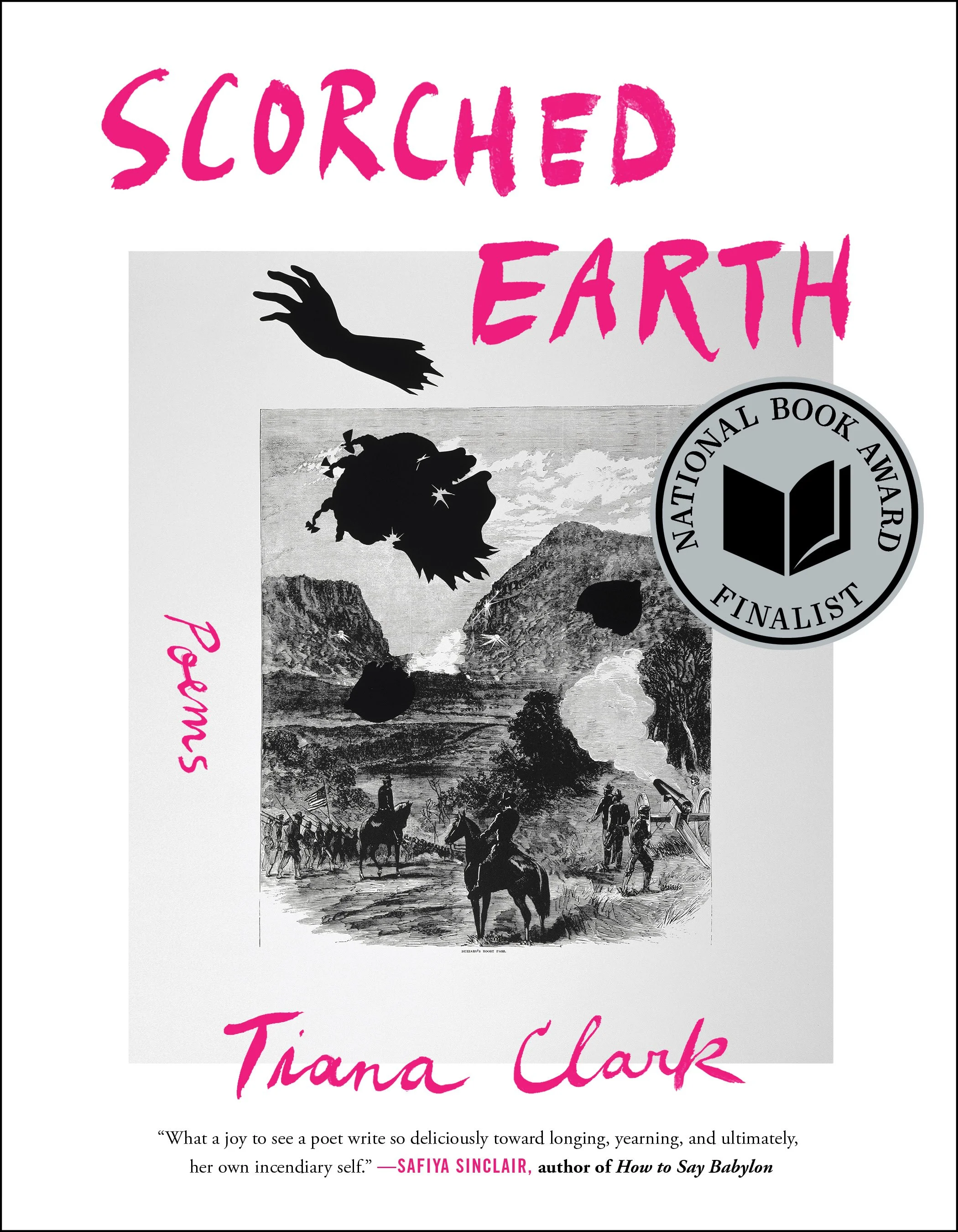Finalist for the 2025 National Book Awards!!!
Scorched Earth is a survey of what is on the other side of survival. The title of my second full-length collection comes from the ekphrastic poem I wrote after the same name, inspired by Kara Walker’s lithograph, Buzzard's Roost Pass, 2005 from Harper’s Pictorial History of the Civil War. I was ecstatic that Walker gave us permission to use this striking piece for the cover of my book, which started coalescing after the 2016 presidential election when I felt invisible and small inside the catastrophic American landscape.
Now, almost eight years later, I wrote my way out of the ruins with radical love and unabashed self-acceptance, a way to feel possible against all the impossibility that I experienced after the deep loss of my divorce during Covid-19 and the chronic gut-punch of political despair, while trying to grasp for more transgressive joy in my work, contemplating if it was conceivable to transcend pain by reaching for queer, Black bliss.
Click on the front cover of the book order. Thank you! Published by Washington Square Press, an imprint of Atria/Simon & Schuster.
Praise for SCORCHED EARTH
“A formally kaleidoscopic work that oscillates between history, family, friendship, love, and the vexed precarity of modern life, Scorched Earth both challenges and soothes at once. But what I love most about these poems, and in Tiana’s poems at large, is the way they name and hold the archive, the barbed histories, the loved ones and the nemeses in our world, with such intelligent tenderness. Here, the ache of lived experience is recast, as it is in our most indelible poems, as sites of wonder and luminosity, where our wounds are—thank god—not merely subjects, but methods.”
—Ocean Vuong, author of On Earth We’re Briefly Gorgeous
“‘I still want joy at the end,’ Tiana Clark writes in Scorched Earth, her searing, expansive new collection of poems. This book begins with an end—the speaker’s divorce—and the poems unpack what it means to have outlived the life you’d expected to have. ‘If my body be a long poem,’ Clark writes, ‘then I want it to go wherever it needs.’ These are poems of Black joy, queer love, and radical acceptance of the self. Scorched Earth is a hell of a book.”
—Maggie Smith, New York Times bestselling author of You Could Make This Place Beautiful
“Scorched Earth is quite the title for this stunning volume in which Tiana Clark challenges our notions of just how many times a poem can turn and just how much any poem can hold. Each page reads as if it is hungry for understanding—of divorce, of Blackness, of the American South, of poetry itself: ‘I want to peg / the canon. So I am running back / and forth between the house of silence / and the house of shame . . . ’ Clark’s is an ever-evolving voice that we need to hear!”
—Jericho Brown, Pulitzer Prize–winning author of The Tradition
“I can give three reasons for why Tiana Clark is a great poet. One—her self-intimacy is really shocking and strong—and she owns it. Two—she knows where to stop (i.e., end the poem), she puts her finger on it, and it’s true or it feels true. Ultimately, her poetry is one big safe word. That’s three. It’s crazy gorgeous, and it stops everything.”
—Eileen Myles, author of I Must Be Living Twice
“To read Scorched Earth is to touch the electric fire of Tiana Clark’s mind—crackling with visceral, wonderfully dangerous poems exploring the feminine erotic, she writes unapologetically about Black womanhood, sexuality, desire, and its mirror world of grief, doubt, and unbelonging. This collection is a celebration of the expanse of Black femininity as its own cosmos of possibility. What a joy to see a poet write so deliciously toward longing, yearning, and, ultimately, her own incendiary self.”
—Safiya Sinclair, author of How to Say Babylon


